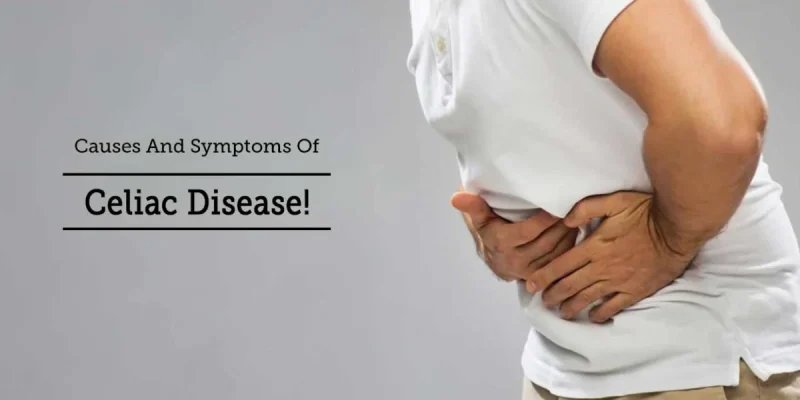Celiac Disease And its Best Homeopathic Treatment
Crohn’s Disease: Know About The Condition & Its Prevention
January 21, 2023
Liver Cirrhosis cured from homeopathic treatment
April 15, 2024What Is Celiac Disease? – Overview
Celiac disease is a chronic autoimmune disorder that affects the small intestine. It is triggered by the consumption of gluten, a protein found in wheat, barley, and rye. In individuals with celiac disease, consuming gluten leads to damage of the small intestine’s lining, which can interfere with the absorption of nutrients from food.
Diarrhea, fatigue, weight loss, bloating and anemia are the most common symptoms of intestinal damage. The only treatment for celiac disease is a strict gluten-free diet. If left untreated, celiac disease can lead to serious complications, such as malnutrition and an increased risk of certain types of cancer.
Symptoms of Celiac Disease
Symptoms of celiac disease can vary widely, but common symptoms include:
- Abdominal pain and bloating
- Diarrhea or constipation
- Fatigue
- Unexplained weight loss
- Anemia (a low count of red blood cells)
- Delayed growth or short stature in children
- Itchy, blistery skin rash (dermatitis herpetiformis)
- Mouth ulcers
- Osteoporosis or osteopenia (bone loss)
- Missed menstrual periods
- Infertility and recurrent miscarriage
- Tingling numbness in the hands and feet
- Depression or anxiety
- Neurological symptoms such as headaches, ataxia (loss of muscle control), or seizures.
Some people with celiac disease have no symptoms at all, and may be unaware that they have the condition.
Celiac Disease in Children
Children with celiac disease are more likely to have symptoms includes:
- Delayed growth or short stature
- Nausea and vomiting
- Chronic diarrhea or constipation
- Abdominal pain and bloating
- Pale, foul-smelling stools
- Irritability or behavioral changes
- Dental enamel defects
- Delayed puberty
- Missed menstrual periods in adolescent girls
- Itchy, blistery skin rash
- Osteoporosis or osteopenia (bone loss)
- Tingling numbness in the hands and feet
Dermatitis Herpetiformis
Dermatitis herpetiformis (DH) is a chronic skin condition that is closely associated with celiac disease. It is characterized by itchy, blistering skin eruptions that typically appear on the elbows, knees, buttocks, and scalp. The rash is symmetrical, meaning it affects the same parts of the body on both sides. The blisters are often grouped together, and they can be very itchy and painful. DH is caused by an immune reaction to gluten and protein It is estimated to occur in 15-25% of people with celiac disease. It is treated with a gluten-free diet and medication to control the symptoms, such as dapsone.
Celiac Disease Risk Factors
Celiac disease tends to be more common in people who have:
- Family history of the condition, as well as certain genetic predispositions
- People with certain autoimmune disorders, such as type 1 diabetes and thyroid disease
- Down syndrome or Turner syndrome
- Microscopic colitis (lymphocytic or collagenous colitis)
- Addison’s disease
When Should Someone with Celiac Disease Consult a Doctor?
It is recommended that you consult a doctor if you experience any of the above symptoms that suggest you may have celiac disease. It is also a good idea to see a doctor if you have a family history of celiac disease or if you have been diagnosed with another autoimmune disorder, such as type 1 diabetes or autoimmune thyroid disease. A doctor will be able to perform the necessary tests to diagnose celiac disease, including blood tests and a biopsy of the small intestine.
Celiac Disease Treatment In Homeopathy.
Celiac disease is successfully treated by Homeopathic medicine without pain full procedure. Because homeopathic treatment is not just drive away the symptoms its help the patient deal with the cause of illness and rebuilt immune system.

